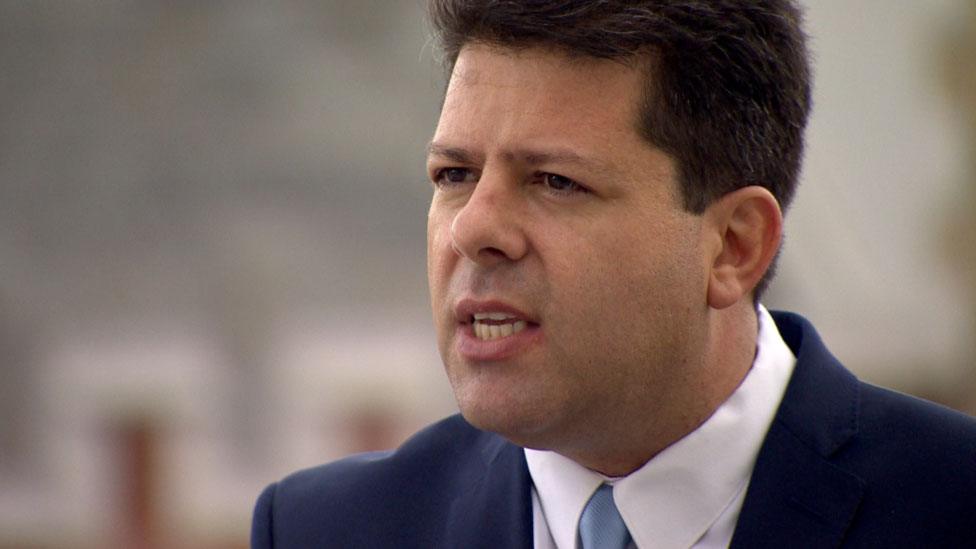Stuck in the middle with EU
- Published
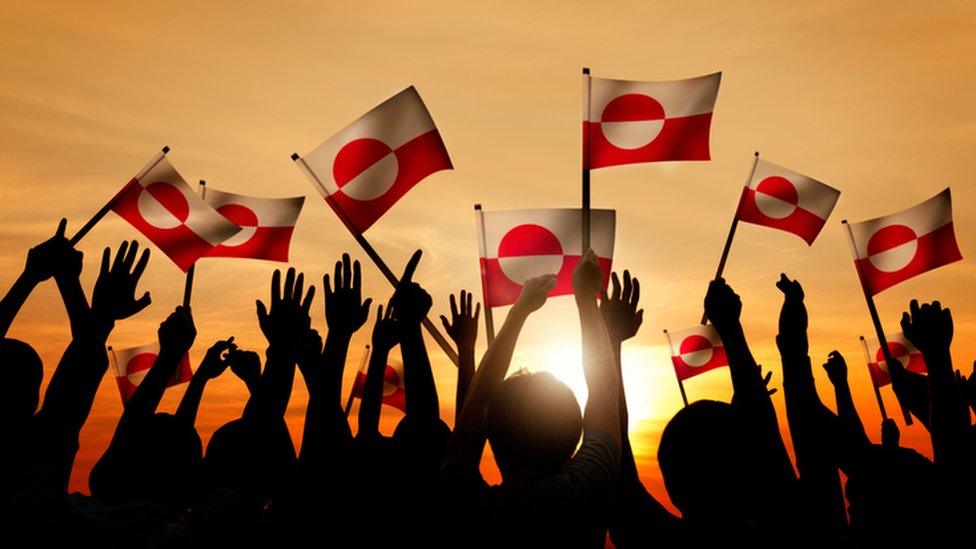
Greenland chose an Arctexit from the EU in 1985 while remaining tied to Copenhagen
I'm old enough to remember when Lib Dems were consigned to the political margins by party members' eccentric fascination with constitutional questions.
Now, the constitution feels like the only game in town. Which reminds me - whatever happened to the Liberal Democrats?
Anyways, we are in (cue cliche) uncharted territory, which is the point at which one should look to the vast, barely-charted territories of Western Australia and Greenland.
Down under, the frontier-people of the vast western desert of Oz voted to pull out of their union with those soft urbanites in far-off Canberra and New South Wales. That was in 1933. And 83 years later, the referendum result has yet to be given effect.
That might give some hope to those who reckon that a 52%-48% result on Brexit is worth re-visiting, in light of what has become clearer since the result was declared.
Could the delay being urged by the Leave campaigners become indefinite? Could the UK stay in the EU, but with its mandate for leaving in its back pocket? Best of three?
Having learned a trick or two from the Scottish independence referendum, if the true believers in leaving the EU had been on the losing side last week, do you think they would now be packing up their bags and learning to love life in the ever-closer European Union?
No, me neither. As with every question on this subject, we don't know. But that shouldn't stop us asking the questions.
Precedent
Greenland is more recent in the precedent it sets for the European Union.
As part of the kingdom of Denmark, it chose an Arctexit from the EU in 1985 while remaining tied to Copenhagen, and while Denmark remained a full member. This required a deal to be struck on access to fishery stocks.
So that's why you may have heard mention of a "reverse Greenland".
The idea seems to be that if a member state can split in such a way that one, populous bit remains in the union and another barely populated bit does not, then could that precedent be applied to Scotland within the UK, but with the bigger bit leaving and the smaller one staying?
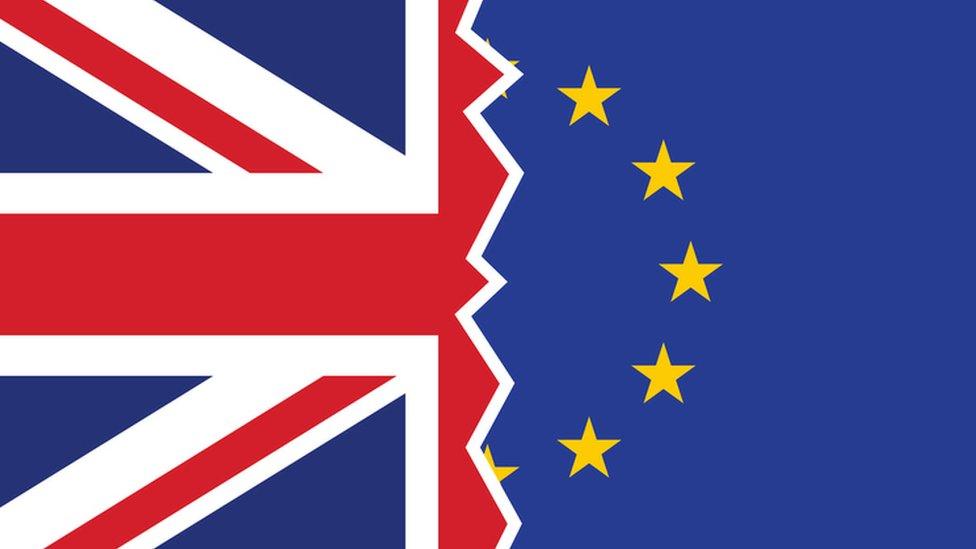
Could Scotland's mandate for membership be respected by the Brussels institutions, giving it a new status of, say, associate membership? That might give access to the open, single markets, EU citizenship, observing the rules of the club, paying membership dues, and yet still within a dislocated Dis-United Kingdom.
It could, arguably, be a successor state to the UK. That might avoid the need to order a new seat for the top table. Scots could take over the one occupied for 43 years by the UK government.
It's the one from which Edward Heath spoke schoolboy French, with the hook on which Margaret Thatcher used to hang her handbag, at which John Major had to watch his back, and to which Gordon Brown turned up late and in a bad mood.
The voting power of the Edinburgh government in the Parliament and Council of Ministers could be adjusted proportionately.
Problematic
This may be the kind of thing Nicola Sturgeon and Alex Salmond have in mind when they say they want to explore all possibilities to give expression to Scotland's majority desire to remain in the EU.
To say such a vision is problematic is something of an understatement. But then, surveying the battlefield of Britain's constitution, which bit of it isn't problematic?
In this case, here is a rough guide to some obstacles:
Problem one: there is no precedent for this. Well, that's easily sorted. The European Union and the United Kingdom are facing a wide range of challenges which have no precedent. The different sides are going to have to get quite inventive.
The idea of Scotland in, but England and Wales out (while Northern Ireland...? And Gibraltar?) would require a completely new form of membership. It would challenge the notion of the European Union as being a club made up of member states.
It would mean the inclusion of a new type of sub-state member. And because Scotland would continue to have much of its fiscal, monetary and various other policies set by a Parliament in London (outside the European Union) it is hard to see how rules could be applied.
How, for instance, could a ruling of the European Court of Justice apply to sub-state member Scotland if non-member England makes an environment or immigration law that covers the whole UK but breaks EU law?
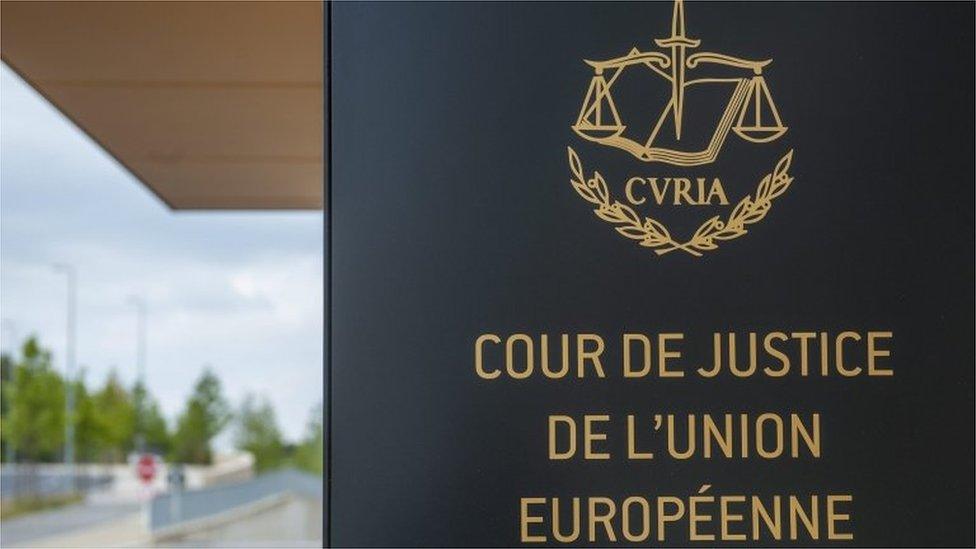
Problem two: Scotland's relationship with the UK is nothing like that of Greenland's relationship with Denmark.
That's for sure. The scale is very different. Greenland's population is under 60,000 - that's less than half the size of Dundee. Scotland, meanwhile, has a population the same size as Denmark. It has a much more complex economy. Getting to a membership, and English non-membership deal, would require a lot more than a discussion of fishing quotas.
Problem three: what chance is there that Scotland would inherit the special opt-outs negotiated by the UK government down the years, such as the one on currency, and at least a share of the rebate?
The mood music, mainly from Germany, in these early days post-referendum, is of Scotland being "warmly welcomed" into the EU as England and Wales depart. But other members' generous embrace may not extend to maintaining these British conditions.
Problem four: the pound, the euro and/or a Scottish currency? This question applies to the independence option as well.
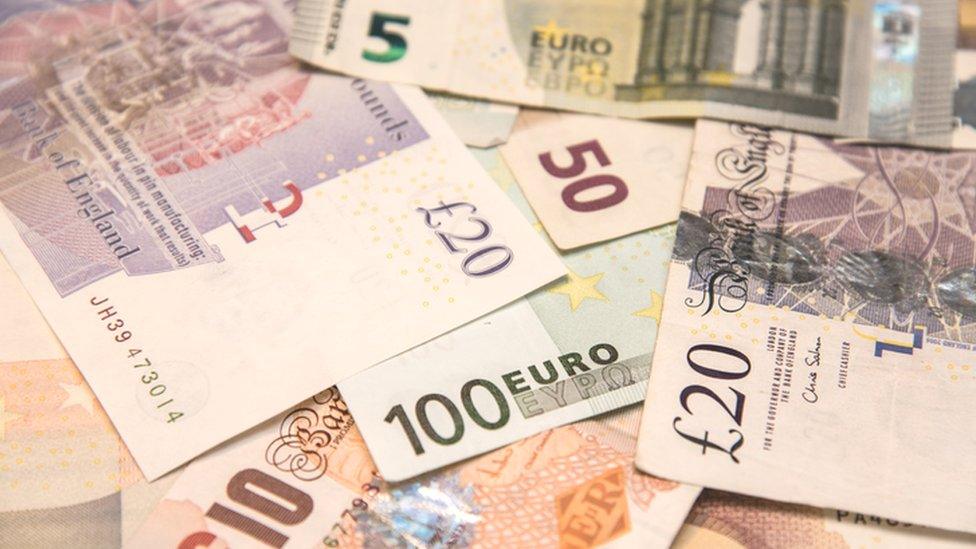
Having a currency (the pound) controlled from outside the EU (in London) and determining monetary policy for a member sub-state would fit very awkwardly with the economic conditions required of current membership.
A rapid move to adopt the euro could be a requirement of a special deal for Scotland. Or under current rules, Scotland could be required to operate its own currency for at least two years before joining the euro.
Remember that Scotland sells roughly twice as much to the rest of the UK as it does to the rest of the world. Splitting from sterling zone would come at a cost to those transacting business across the border.
Problem five: the border. Unlike Greenland, as an island far from Denmark, this plan would create a "hard border" at the frontier of the EU. At the Tweed and the Cheviots, goods would be stopped at customs.
Some would be subject to tariffs set in Brussels, some set in London. People would be stopped too as they pass from England into the EU and the other way round.
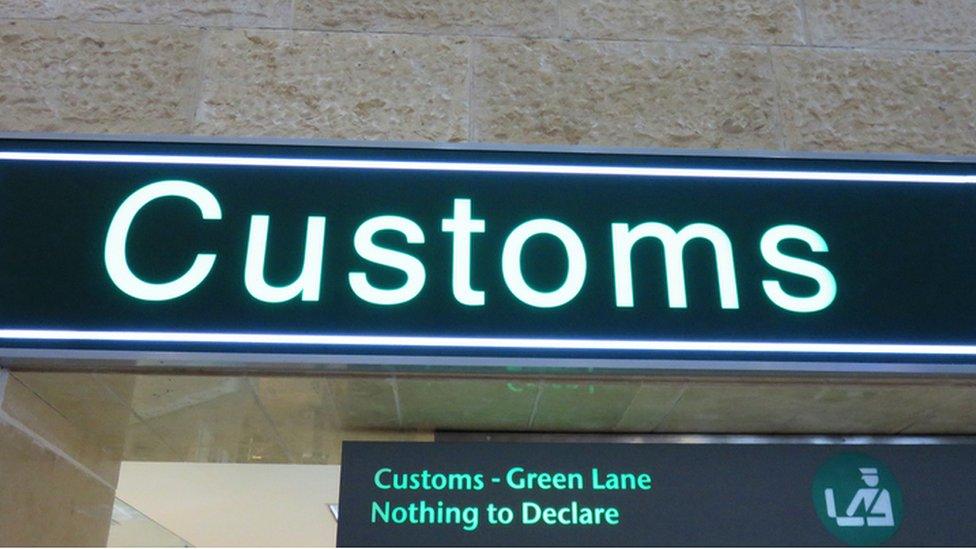
The free movement of labour, which has been such a contentious part of this EU debate, would apply between Scotland and the rest of the EU, but would stop at the Tweed, just as it would at Dover. If not patrolled, the Scottish border could be the soft way for EU migrants to get to London.
And where would citizenship of the UK allow you to live? Would an English person have the right to live in Scotland, and gain from Scotland's EU citizenship rights, including freedom of travel and work across the continent?
If there were rights unique to those living in England - in welfare or pensions, or the right to work, for instance - would a Scottish-EU-UK citizen have the right to claim them?
Fiendish complexity
These are just some of the obstacles to such a plan. They don't mean that a "reverse Greenland" couldn't happen. But they make it look unlikely.
Suggesting "reverse Greenland" could be seen as a means of highlighting the neater, tidier appeal of the Scottish independence option. That would mean Scotland being a full member state, as Denmark is (with its own currency, as it happens).
But getting through the negotiations and a second independence referendum, at the same time that Whitehall's energies are being absorbed in deal-making with Brussels and European governments, looks fiendishly complex.
Don't under-estimate how much governmental head-space all this is going to take up, at the expense of priorities in public services and beyond.
The sequencing would likely make it more difficult to treat Scotland as the successor to the UK's membership.
It would be more of an accession than a successor state, without Britain's exceptions and opt-outs, with euro membership expected, and still with a hard border separating Scotland from customers in its biggest market.
And all this while it has a sizeable 38% of its electorate wanting to be outside the EU.
- Published27 June 2016
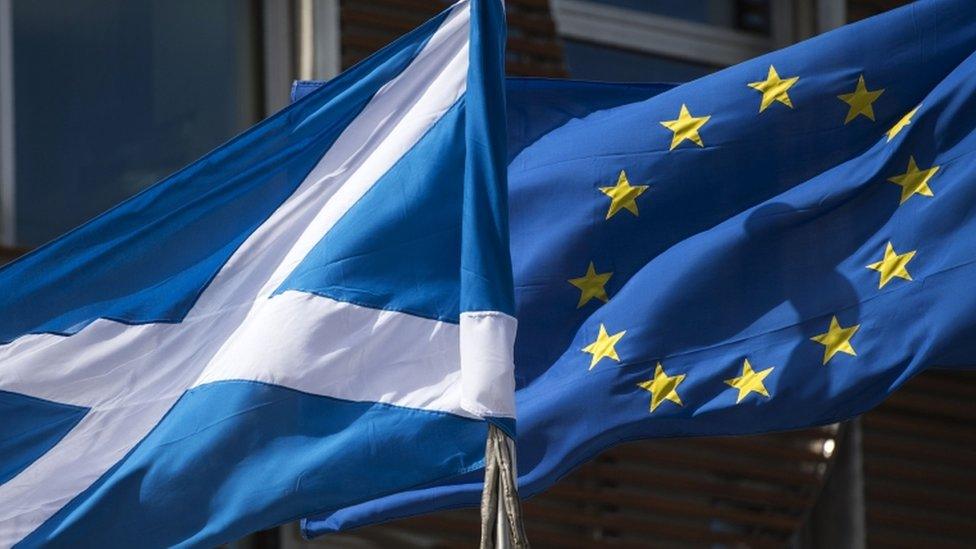
- Published27 June 2016
